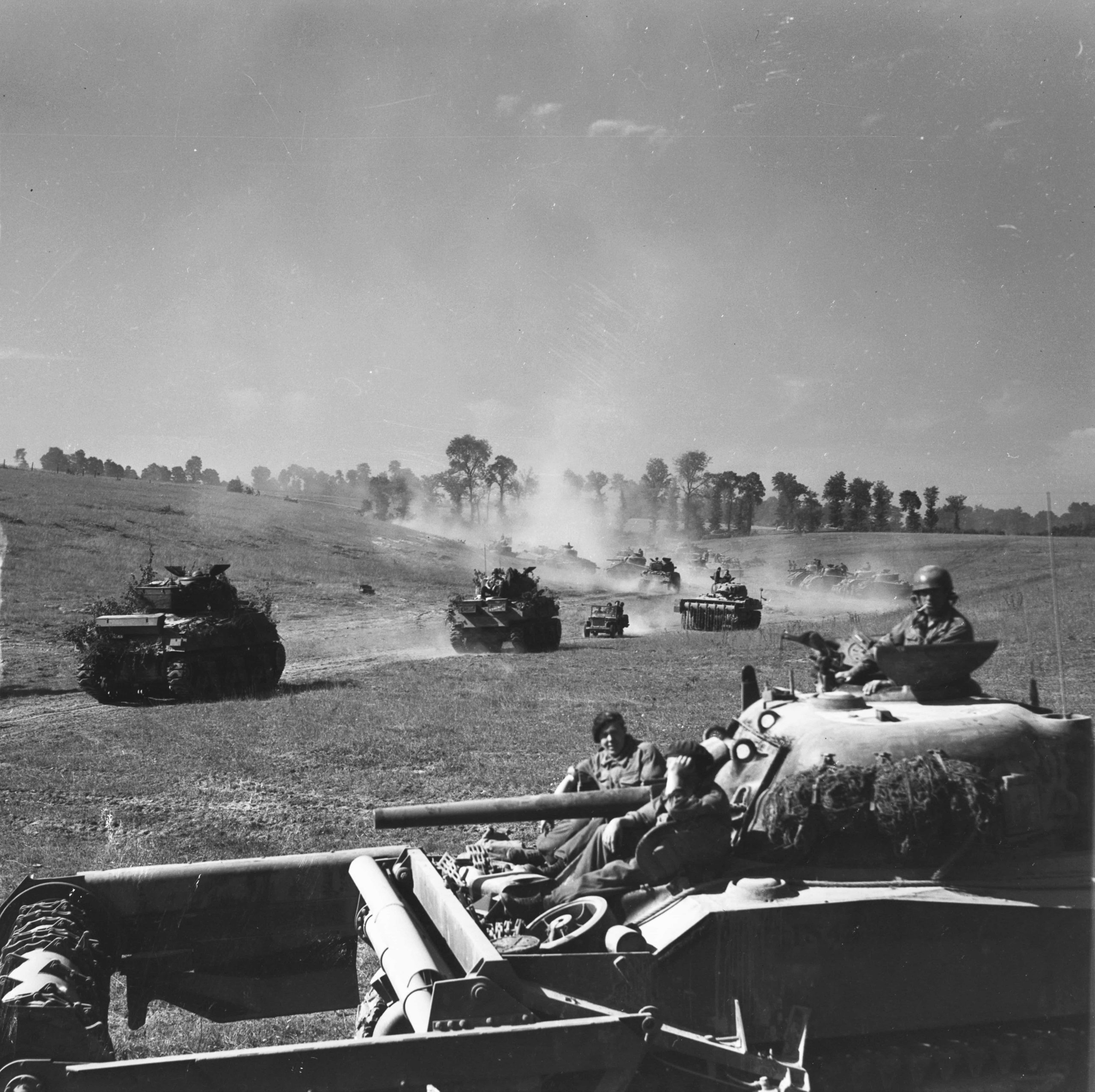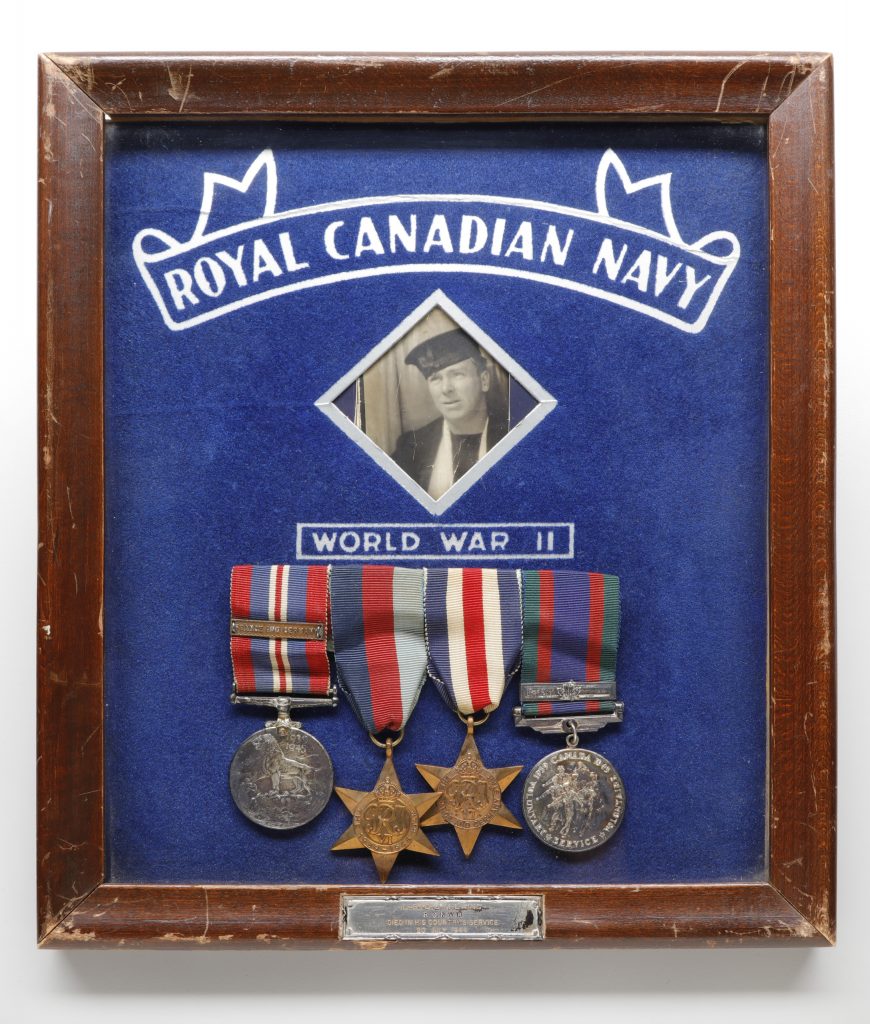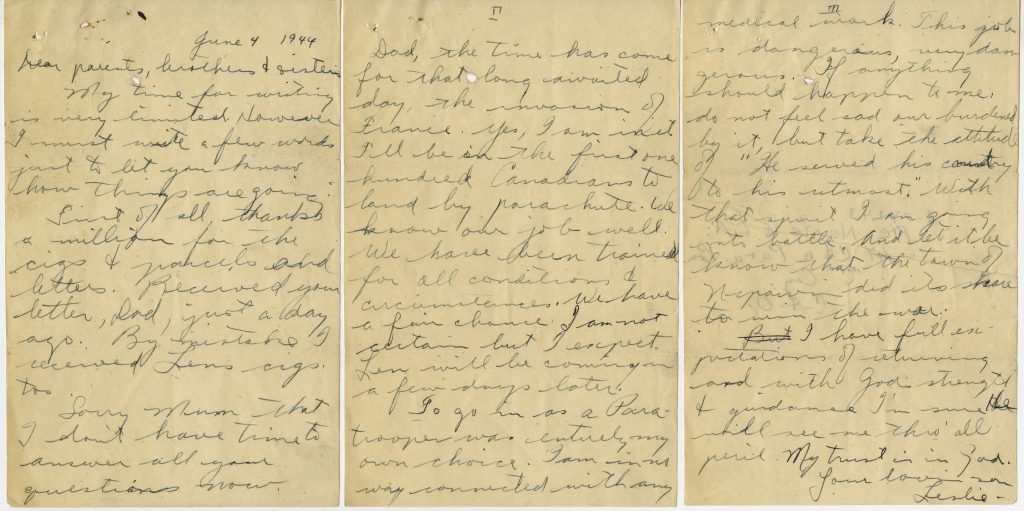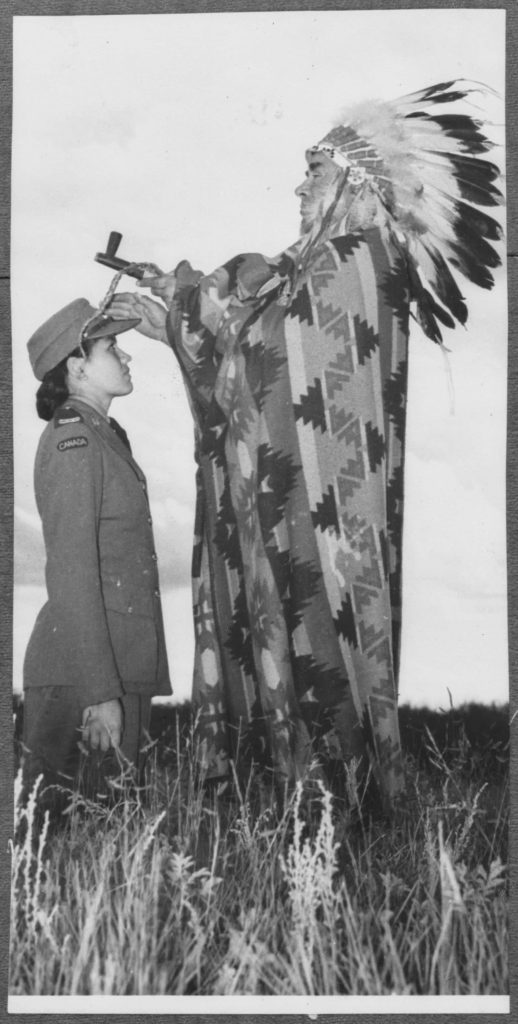
10 September 1939–15 August 1945
Historical Overview
Under Adolf Hitler and the National Socialist (Nazi) party, Germany wanted to expand its territory and conquer Europe. Germany invaded Poland on 1 September 1939. France and Britain went to war, with Canada standing by the allies when it declared war separately on 10 September 1939. The conflict would expand into the Second World War—the deadliest war the world has ever known.
About the War
The Second World War was a total war involving most elements of society. Canadians contributed in many ways, fighting overseas, defending the country at home, and producing the weapons of war and food for Allied nations. With massive financial support and incredible exertions demanded of most Canadians, few were left untouched by the war.
During the Second World War, Canadians defended the east and the west coasts and fought in a series of long and difficult campaigns — on land, at sea and in the air — to defeat the German, Italian and Japanese forces.
More than 1.1 million Canadian men and women served in the armed forces. The home front was largely directed to winning the war. The cost of victory was high with almost 42,000 Canadians killed before Germany was defeated in May 1945 and Japan in August of the same year.
The Aftermath of the War
The human devastation of the Second World War is difficult to comprehend. Estimates vary widely. Death tolls range from 50 to 80 million people.
Canada contributed significantly to the Allied victory in this just and necessary war. Revelations of the Nazi atrocities and the Holocaust shocked the world. The war also led to the decolonization of empires, the creation of the United Nations, and a new Cold War between the United States and the Soviet Union, and their respective allies.
Canada was also fundamentally transformed. More than a million veterans came home to lead Canada into the prosperous second half of the twentieth century. There was increased urbanization, industrialization, state intervention in the lives of Canadians, interconnected trade with the United States, and a widespread desire for greater commitment in world affairs.
A new Canada emerged from the service and trauma of the war.
Banner photo:
Sherman tanks moving out near Bretteville-le-Rabet, France, 14 August 1944.
Lieut. Donald I. Grant / Canada. Dept. of National Defence / Library and Archives Canada / PA-113659



